Visiting Taiwan’s Silicon Valley: IMPIS Annual Study Trip to Industrial Technology Research Institute
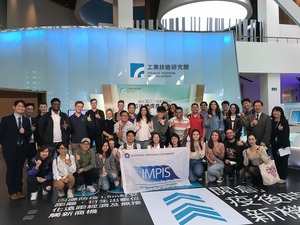
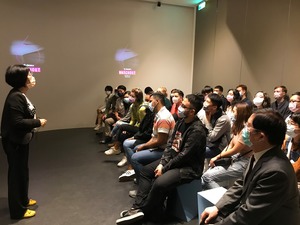
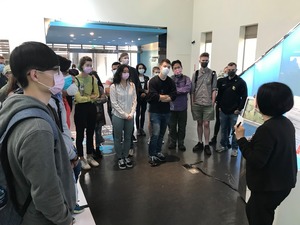
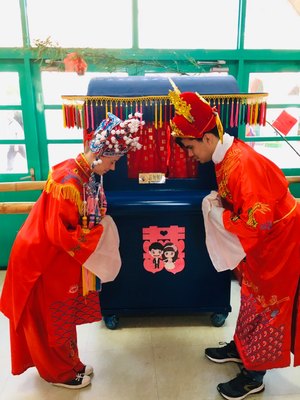
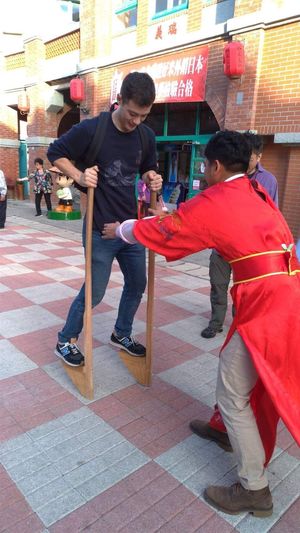
Date :
2020-12-01
Department :
International Master's Program in International Studies
【Article by IMPIS】
The International Master’s Program in International Studies (IMPIS) visited the Industrial Technology Research Institute (ITRI) the most significant applied technology research institute in Taiwan, in Hsinchu November 23. Thirty three students from the United States, Belize, Guatemala, New Zealand, the Philippines, Poland, Thailand, Honduras, St. Vincent and Grenadines, Germany, France, Brazil, Canada, Indonesia, St. Lucia, Czech Republic, and Mainland China, have enthusiastically participated in the event.
Hsinchu is known as Taiwan’s Silicon Valley. ITRI is located in Zhudong Township, Hsinchu County, and was established in 1973. Since its establishment, ITRI has been one of the top international applied technology research institute around the globe. It is also the pioneer of Taiwanese semi-conductor development, which possesses nearly 30 thousand patents.
ITRI has incubated numerous industrial giants over the years. For example, Morris Chang, founder of TSMC, has served as both the head (1985-1988) and chairperson (1988-1994) of ITRI.
By listening carefully to ITRI researcher’s tour, students realized that ITRI will be enhancing the development of intelligentization enabling technologies and focusing on three application domains: Smart Living, Quality Health, and Sustainable Environment amid this rapidly evolving world.
Among numerous novel inventions and ideas, it was the ward monitor system that drew the students’ attention the most. The researcher expressed that traditional ward inspection usually needed healthcare workers to enter the ward in person, which made them exposed to the risk of infection. However, the new monitor system, which is still in testing period, would allow healthcare workers to collect data remotely, such as pulse rate, heartbeat, breathing rate, and etc, without having direct contact with the patient, and transmit the data automatically to the staff. “The new system will not only lower the risk of healthcare workers being infected, but also allow them to provide necessary treatments immediately according to the data,” said the researcher.
Jessica Penn, IMPIS first-year student from the United States, asked that whether ITRI would license the system to other countries amid this Covid-19 pandemic. The system is now currently under testing with MOHW Taipei Hospital, but the researcher believed that once the testing is done, ITRI will be willing to share the technology with foreign partners.
Since Hsinchu is famous for its Hakka cultural and historical heritage, the students also paid a visit to Hukou Hakka Creative Park in the afternoon. They did not only enjoy Hakka cuisine and traditional Hakka toys, such as walking on bamboo stilts, the students also put on traditional Hakka wedding costumes and experienced the unique wedding ceremony of Hakka people. Ryan Victor Miranda, IMPIS second-year student from the Philippines, said that there are toys like the Hakka stilts in the Filipino countryside. Benjamin Denn, IMPIS second-year student from the United States, also expressed that he had tried to walking on stilts back in the States when he was a child. While being impressed by the uniqueness of Hakka culture, the students was also surprised that their childhood memory could be aroused under a foreign sky.
“Hsinchu is a significant driver of Taiwan’s technological and economic development. After visiting ITRI, I hope our students could understand how important Hsinchu is to Taiwan, and how important Taiwan is to the world,” said IMPIS director Dr. Chung-chian Teng. As a Hakka, Dr. Teng mentioned that the most vivid characteristic of Hakka people is hardship. He expressed his appreciation and admiration for the students’ courage and hardship to studying abroad in Taiwan despite the pandemic.
While warmly welcoming the IMPIS newcomers, Dr. Teng encouraged students to get out of their comfort zones and to immerse themselves in authentic Taiwanese culture.
The International Master’s Program in International Studies (IMPIS) visited the Industrial Technology Research Institute (ITRI) the most significant applied technology research institute in Taiwan, in Hsinchu November 23. Thirty three students from the United States, Belize, Guatemala, New Zealand, the Philippines, Poland, Thailand, Honduras, St. Vincent and Grenadines, Germany, France, Brazil, Canada, Indonesia, St. Lucia, Czech Republic, and Mainland China, have enthusiastically participated in the event.
Hsinchu is known as Taiwan’s Silicon Valley. ITRI is located in Zhudong Township, Hsinchu County, and was established in 1973. Since its establishment, ITRI has been one of the top international applied technology research institute around the globe. It is also the pioneer of Taiwanese semi-conductor development, which possesses nearly 30 thousand patents.
ITRI has incubated numerous industrial giants over the years. For example, Morris Chang, founder of TSMC, has served as both the head (1985-1988) and chairperson (1988-1994) of ITRI.
By listening carefully to ITRI researcher’s tour, students realized that ITRI will be enhancing the development of intelligentization enabling technologies and focusing on three application domains: Smart Living, Quality Health, and Sustainable Environment amid this rapidly evolving world.
Among numerous novel inventions and ideas, it was the ward monitor system that drew the students’ attention the most. The researcher expressed that traditional ward inspection usually needed healthcare workers to enter the ward in person, which made them exposed to the risk of infection. However, the new monitor system, which is still in testing period, would allow healthcare workers to collect data remotely, such as pulse rate, heartbeat, breathing rate, and etc, without having direct contact with the patient, and transmit the data automatically to the staff. “The new system will not only lower the risk of healthcare workers being infected, but also allow them to provide necessary treatments immediately according to the data,” said the researcher.
Jessica Penn, IMPIS first-year student from the United States, asked that whether ITRI would license the system to other countries amid this Covid-19 pandemic. The system is now currently under testing with MOHW Taipei Hospital, but the researcher believed that once the testing is done, ITRI will be willing to share the technology with foreign partners.
Since Hsinchu is famous for its Hakka cultural and historical heritage, the students also paid a visit to Hukou Hakka Creative Park in the afternoon. They did not only enjoy Hakka cuisine and traditional Hakka toys, such as walking on bamboo stilts, the students also put on traditional Hakka wedding costumes and experienced the unique wedding ceremony of Hakka people. Ryan Victor Miranda, IMPIS second-year student from the Philippines, said that there are toys like the Hakka stilts in the Filipino countryside. Benjamin Denn, IMPIS second-year student from the United States, also expressed that he had tried to walking on stilts back in the States when he was a child. While being impressed by the uniqueness of Hakka culture, the students was also surprised that their childhood memory could be aroused under a foreign sky.
“Hsinchu is a significant driver of Taiwan’s technological and economic development. After visiting ITRI, I hope our students could understand how important Hsinchu is to Taiwan, and how important Taiwan is to the world,” said IMPIS director Dr. Chung-chian Teng. As a Hakka, Dr. Teng mentioned that the most vivid characteristic of Hakka people is hardship. He expressed his appreciation and admiration for the students’ courage and hardship to studying abroad in Taiwan despite the pandemic.
While warmly welcoming the IMPIS newcomers, Dr. Teng encouraged students to get out of their comfort zones and to immerse themselves in authentic Taiwanese culture.


 Fax:886-2-29379611
Fax:886-2-29379611